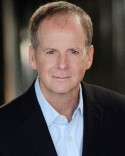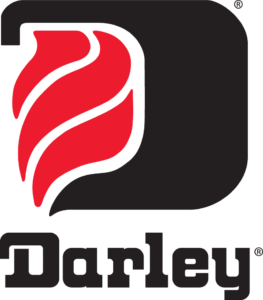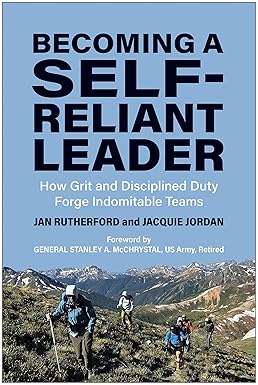
Jan Rutherford, founder of Self Reliant Leadership®, takes a deep dive into the themes of self-reliance and leadership resilience. He shares insights from his collaboration with Jacquie Jordan, a co-author on his book “Becoming a Self-Reliant Leader: How Grit and Disciplined Duty Forge Indomitable Teams”.
Jan explores the foundational principles of Self-Reliant Leadership: leading oneself, leading others, and leading the organization, stressing the continuous adaptation and refinement of these interrelated skills.
Jan shares personal insights from his background in Special Forces and leading wilderness expeditions, emphasizing the importance of solitude and reflection for effective leadership.
Jan highlights practical strategies for fostering resilience and adaptability in leaders, emphasizing the need for clear expectations, accountability, and effective communication within teams.
Jan reflects on his journey as a leader, acknowledging the challenges and transformations he’s experienced. He emphasizes the importance of self-awareness and facing one’s own hypocrisy in leadership, a concept inspired by one of his mentors.
Key Takeaways
[03:36] Jan Rutherford, founder of Self Reliant Leadership, discusses the importance of self-reliance in leadership. Inspired by the book “My Side of the Mountain” as a child, Jan learned the value of self-sufficiency. A challenging experience during special forces training further solidified his belief. Leaders, according to Jan, need to be well-rounded individuals taking care of themselves mentally, physically, emotionally, and spiritually. This self-reliance allows them to make tough decisions and lead effectively even in difficult situations. However, Jan also emphasizes the importance of relying on others for help when needed.
[07:26] Self-reliance is a core concept for Jan’s leadership philosophy. It translates into three pillars: leading self (taking responsibility), leading others (setting expectations), and leading the organization (alignment and focus). Jan emphasizes the importance of constantly reflecting and adapting these principles. He uses an analogy of climbing a summit – preparation, teamwork, and a clear vision are all crucial for success. Jan also shared a story from a past expedition where nervousness manifested as humor.
[12:31] Jan also talks about what leaders can do to foster greater resilience and adaptability in themselves.
[14:32] Jan talks about effective leadership communication. Leaders should set clear expectations and solicit feedback to improve performance. Negotiation is key to gaining commitment from employees. Leaders should also understand the importance of balancing tasks with building relationships with their teams.
[20:55] Jan discusses the challenges of personalized leadership. Leaders need to tailor their approach to individual employees while still maintaining fairness. Effective leaders should spend more time developing individual relationships with their team members.
[22:22] Jan discusses how to handle HR policies that restrict personalized leadership approaches. The leader is advised to push back on HR and use their power to implement what they believe is best for their team.
[24:35] Jan discusses the importance of self-awareness in leadership. He also talks about the challenges of modern leadership and the importance of helping people find purpose and meaning in their work.Jan also shares how having a co-author of his book, Jackie Jordan, brought a valuable outsider’s perspective to the project.
[35:40] Say nothing which is not true, nothing which is not kind, nothing which is not useful, and nothing which is not necessary. – W. S. Darley
The Leadership Podcast is sponsored by W.S. Darley & Company.
Founded in 1908, Darley remains a family owned and operated business, providing the highest quality equipment solutions to our country’s warfighters and firefighters.
Learn more at darley.com and darleydefense.com
Quotable Quotes
“You gotta get up on the hill. You know, we are not paid to be busy. We got to get some alone time and reflect and figure things out.” Share on X “If you’re not squared away, if you’re not self reliant, you can’t lead. Because when it’s your turn to lead, you’ve got to exhibit discipline, and you’ve got to sacrifice, and you know, you got to muster everything.” Share on X “Slow down to speed up.” Share on X “We get so caught up in our head trash that sometimes like, oh my gosh, this is the end of the world. Is it really the end of the world? No, it’s not.” Share on X “Don’t ask people for feedback. Ask them for advice and suggestions.” Share on X “The biggest challenge is the need to personalize leadership approaches yet be perceived as fair.” Share on X “We are not high and mighty. We are flawed. You know, we are works in progress. We are facing our own hypocrisy.” Share on X “There's a big difference between good tired and bad tired. And I think our obligation as leaders, coaches, whatever we do, is to send people home at night good tired, not bad tired.” Share on X
Here are the books mentioned in this episode
Resources Mentioned
- The Leadership Podcast | theleadershippodcast.com
- Sponsored by | www.darley.com
- Rafti Advisors. LLC | www.raftiadvisors.com
- Self-Reliant Leadership. LLC | selfreliantleadership.com
- Jan Rutherford LinkedIn | www.linkedin.com/in/janrutherford
- X (Twitter) @JanRutherford
- YouTube | www.youtube.com/@selfreliantleadership





Recent Comments